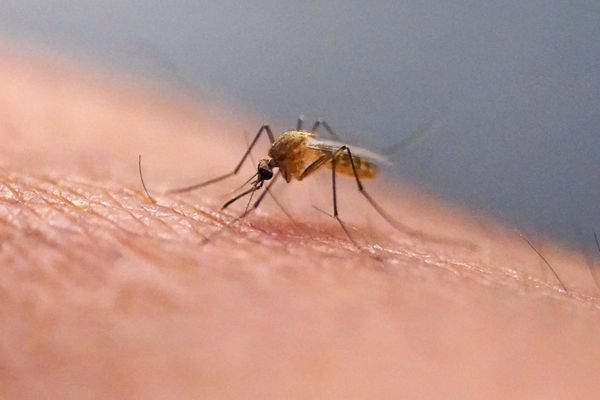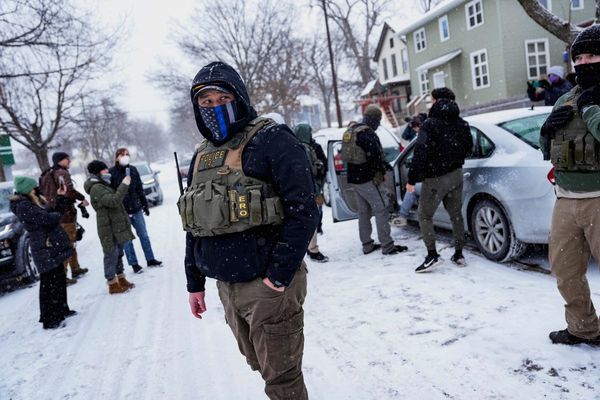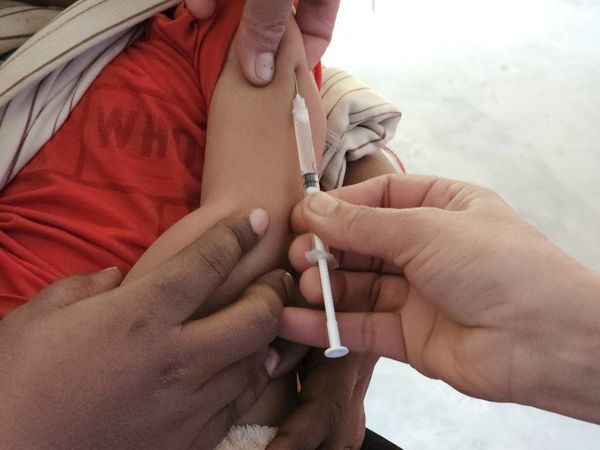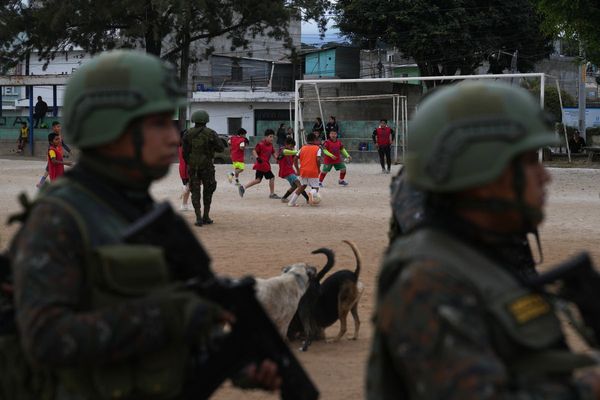The walls above Ruby Harris's desk are plastered with laminated word lists and worksheets filled in with coloured pencil.
But this isn't an ordinary primary school.
A few hundred metres outside Ruby and her sister Macy's classroom window are the postcard-perfect beaches of a tropical island.
Their parents, Amy and Kelly, moved to Woppa-Great Keppel Island off the central Queensland coast seven years ago – swapping Brisbane corporate careers for life off-grid.
The day before Mr Harris started work as manager of one of the island's accommodation venues in 2016, the couple found out they were expecting their first child.
"I worked in Rockhampton for a while and would travel [to Great Keppel Island] on the weekends," Ms Harris said.
"Then once we fell pregnant with our second … there was no doubt at all that we would come over here full-time."
Growing up offshore
The island, at the southern end of the Great Barrier Reef, is often remembered as a 1980s party paradise.
The main resort closed over a decade ago and last year Gina Rinehart's company became the third in five years to abandon redevelopment plans.
Fewer than 20 people live permanently on the island, although they're joined by dozens of on-site temporary staff.
It's the only life Ruby, 6, Macy, 5, and Livvy, 3 know – something Ms Harris believes helped them settle into distance education.
"I think if you had them in a school and then brought them out here it would be a lot more challenging," she said.
What does a school day look like?
The family plan to build a dedicated schoolroom outside their home, but for now they're set up between the laundry and the lounge.
Online classes through the Capricornia School of Distance Education usually take up the morning and there are lessons for the girls to work through between calls.
"There's a pretty strict curriculum," Ms Harris said.
"Then usually by lunchtime most days, we can get to the beach and do outdoor activities.
"They're much happier outside."
Ms Harris tries to find special activities as mini excursions for the girls – recently they went snorkelling and checked off the different aquatic wildlife they'd spotted.
Distance education doesn't mean isolation
On the other side of the screen are people like Ruby's teacher Amelia Ahern.
The Capricornia School of Distance Education covers a diverse area across more than 300 kilometres of central Queensland.
The Harris family's island life is a first for Ms Ahern, who's been at the school for five years and said most of her students were in the bush.
"They [the Harris family] are on an island, they're geographically isolated and someone who is on a cattle station is geographically isolated – in a way there are similarities, but they are a very unique family," she said.
"It's been a really nice kind of dimension to the lessons having a student who was able to share all of the wonderful and interesting things that they get to do over at the island."
Ms Ahern said distance learning was focused on creating an experience as close to in-person teaching as possible.
"When we're delivering our lessons, we've got to check that the students are engaged and participating in different ways," she said.
"We've really got to invest in the relationship with the student, with the parents, with the home tutors.
"You've got to put a lot of time and effort into making sure that they're feeling comfortable, that they want to come to their lessons."
Planning and patience needed
It may look like paradise, but island schooling isn't without its challenges.
The island is off-grid and relies on generators, and without the resort redevelopment, it's been hard to push for connection to mainland power.
"We've only recently got wi-fi in our house," Ms Harris said.
"On a cloudy day the internet drops in and out so it is challenging, but we make do."
After-school activities also require more planning, with all three sisters this year starting gymnastics on the mainland.
"We've got to pack a bag, catch a ferry, get in the car, drive to the activity, do the activity, and then turn around and come back [on the ferry] early the next morning for school," Ms Harris said.
"It gets challenging sometimes and there's times when I've wanted to pack up and go back to the mainland.
"But as the girls get a little bit older, it makes it a lot easier to see the future and raising them here."







